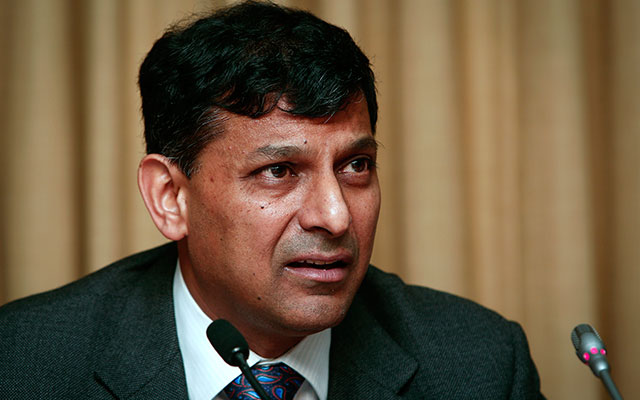
The Reserve Bank of India (RBI) on Tuesday held interest rates steady, putting the onus of future rate cuts on the forthcoming budget and inflation.
The central bank kept the repo rate, its main lending rate, at 6.75 per cent in its bi-monthly policy review. The decision was in line with a VCCircle poll of 15 economists.
In his policy statement, RBI governor Raghuram Rajan said the central bank continues to be “accommodative” and put the ball in the government's court to accelerate economic expansion. “Structural reforms in the forthcoming Union Budget that boost growth while controlling spending will create more space for monetary policy to support growth, while also ensuring that inflation remains on the projected path of 5 per cent by the end of 2016-17,” he said.
While the central bank has cut rates by 125 basis points over the past year, economists expect the pace to be much slower this year given the uptick in inflation and calls for the government to deviate from its fiscal consolidation path to support growth.
The RBI also kept unchanged the statutory liquidity ratio (SLR) and cash reserve ratio (CRR). SLR is the reserve requirement that commercial banks must maintain in the form of cash, gold or government-approved securities before providing credit to the customers. CRR is the amount of cash banks have to keep with RBI.
The central bank maintained its outlook for economic growth in terms of gross value added (GVA) for 2015-16 at 7.4 per cent with a downside bias. For the next fiscal year, it expects GVA growth to be 7.6 per cent despite headwinds such as worries about the global economy.
Expectations of a normal monsoon after two consecutive years of rainfall deficiency, the large positive terms of trade gain, improving real incomes of households and lower input costs of firms should contribute to strengthening the growth momentum, it said.
The bank highlighted concerns of weak domestic private investment demand in a phase of balance sheet adjustments, re-emergence of concerns relating to stalled projects, excess capacity in industry, sluggish external demand conditions dampening export growth.
Inflation numbers also remained constant with the RBI expecting the consumer price index to remain below the 6 per cent target for January 2016 and within the 5 per cent limit by the end of the next fiscal year. But the central bank pointed out that the effects emanating from the seventh pay commission’s recommendations were not taken into consideration and the bank shall adjust the estimates based on the implementation of the programme.
The pay commission recommended a hike in wages by 23.5 per cent on average for close to 50 lakh government employees. This is expected to boost consumer spending and weigh on inflation, which is already high due costlier pulses. Consumer inflation figures released for December last month had shown inflation inching up to 5.6 per cent due to a 40 per cent surge in pulses prices.
The central bank also said that, to support the Start-up India initiative launched by the government last month, it will take steps to ease doing business and contribute to an ecosystem that is conducive for growth of startups. It said that it will create an enabling framework for receiving foreign venture capital, differing contractual structures embedded in investment instruments, deferring receipt of considerations for transfer of ownership, facilities for escrow arrangements, and simplification of documentation and reporting procedures.